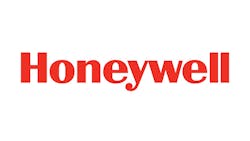Investor Urges Honeywell to Spin Off Aerospace Unit
Third Point, the investment firm founded by Dan Loeb, took a stake in Honeywell International Inc. (IW 500/30) and called for the industrial manufacturer to spin off its aerospace business.
The move would increase shareholder value by more than $20 billion and enable Honeywell to focus on its automation and productivity businesses, Third Point said in a letter to investors. Honeywell surged in early trading.
“Aerospace’s presence in the portfolio is the chief cause of Honeywell’s discounted valuation,” Third Point said. “Aerospace would be better off as a stand-alone entity.”
The timing may be right for Honeywell to make a bold move because new Chief Executive Officer Darius Adamczyk, who took over from Dave Cote on March 31, is “actively evaluating the portfolio” with the help of the board, Third Point said. The investment firm pointed to Tyco International, Ingersoll-Rand Plc, ITT Inc. and Danaher Corp. as companies that have split off units to boost shareholder value.
Honeywell jumped as much as 3.9% to $135 before regular trading opened in New York on Friday.
Earnings Drag
Peers such as Emerson Electric Co. and Rockwell Automation Inc. trade at an almost 30% premium to Honeywell based on the forward price-to-earnings ratio, Third Point said. The aerospace business is the main cause of the Honeywell discount, Third Point said.
The aerospace unit has been a drag on Honeywell’s earnings amid a weak market for business jets and helicopters, and because of budget cuts that have hurt defense sales. The business makes parts ranging from cockpit controls to jet engines. Last year, sales at Honeywell Aerospace fell 3.2% to $14.8 billion and segment profit dropped 7.1% to $2.99 billion.
Honeywell said it will do a “comprehensive, informed and objective review” of spinning out the aerospace business. The unit is part of a “strong portfolio of businesses” with great positions in growing industries, the company said in a statement. Honeywell makes a wide range of products from natural-gas processing equipment to security systems to hand-held computers used in warehouses.
“We believe that each of our businesses benefits from the ability to leverage our unified, world-class operating system, technology resources, and corporate infrastructure across the entire enterprise,” Honeywell said.
The aerospace unit has been a source of technologies such as internet connectivity and product software upgrades that have spread across Honeywell’s businesses, making it valuable for the company, said Nick Heymann, an analyst with William Blair & Co.
“I really don’t know why they would need or want to spin Aerospace off from the rest of the businesses unless they believe this is the peak-peak of the cycle and there is far more cyclical downside risk than most believe is likely,” Heymann said in an email.
Separation Not Necessary: Analysts
Analysts at Citigroup Inc. and Jefferies & Co. agreed that separating the division wasn’t necessary.
“We too like the themes that Third Point highlights, but Honeywell is on a path that could deliver 20% in a reasonable period of time without the distraction of a spin,” Jefferies analyst Howard Rubel wrote in a note to investors.
New York-based Third Point has focused much of its recent activism in Japan, where the firm’s investments have included Seven & i Holdings Co. and Sony Corp. Loeb has been active in U.S. investments including auction house Sotheby’s and medical-device maker Baxter International Inc.
Loeb, who has said that President Donald Trump’s policies will accelerate growth in the U.S., told investors that corporate activity will pick up as his tax changes are developed and enacted, and that opportunities for activist investors are robust. Risks include legislative failure and weaker economic data that “has raised a red flag,” Third Point said.
Third Point’s offshore fund rose 5.9% in the first quarter, underperforming the S&P 500 index. The fund has trailed the index, including reinvested dividends, every year from 2013 to 2016.
In addition to its new position in Honeywell, the firm said it’s invested in Italian bank UniCredit SpA. Third Point said it sees significant potential upside for the company, which has undergone a revamp since CEO Jean Pierre Mustier took over in July.
Third Point also purchased a stake in EON SE, saying the German utility’s business is misunderstood by market and attractively priced, the firm said. Its “core electricity and gas distribution grids are exceptionally valuable as they cannot be replicated,” Third Point said in the letter.
By Thomas Black and Katia Porzecanski
About the Author
Bloomberg
Licensed content from Bloomberg, copyright 2016.
